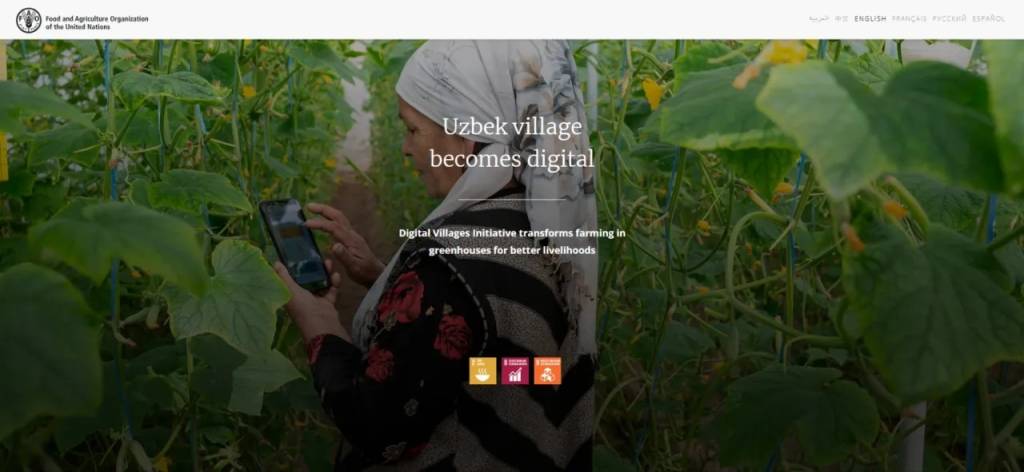
The article “Uzbek village becomes digital” was published on FAO website.
The article notes that the Digital Villages Initiative is a flagship program of FAO aiming to transform at least 1,000 villages worldwide into digital hubs. The initiative seeks to foster rural transformation and empower communities through digitalization and participatory approaches to combat hunger, poverty, and inequality. The Digital Village Initiative helps farmers access technology to boost production, access rural services, and improve livelihoods.
Saodatkhon Oripova is one of the farmers taking part in the Smart Farming for the Future Generations project of the Food and Agriculture Organization of the United Nations (FAO). It is closely aligned with the Digital Villages Initiative, which was introduced in the villages of Novkent and Yuksalish in Fergana Valley of Uzbekistan in 2023.
But it’s not just farmers who are getting involved. FAO also offers training programs to local young people. A coding camp helped train youth in replicating smart sensor devices. In the culmination of the training programs, a Digital Villages Hackathon took place in November 2023, yielding an array of innovative agritech solutions to the challenges faced by rural people in Fergana Valley.
The continuation of regular collaborative innovation workshops, known as “living labs,” also provides a vital platform for exchange among farmers, experts, and innovators. During these sessions, farmers like Saodatkhon Oripova and her family discuss their challenges, such as heating the greenhouse against the biting winter cold. Other topics brainstormed with local actors and experts include water scarcity, a lack of infrastructure, and limited access to reliable extension services.
As technologies develop at breakneck speed, Saodatkhon Oripova says she looks forward to further innovations such as smart irrigation and renewable energy solutions for her greenhouse.
FAO is scaling up the Digital Villages Initiative in Central Asia and beyond, working closely with rural communities to understand their most pressing problems and desired outcomes, identify the agricultural technologies best suited to the community, and support them on their digital transformation journeys.
UzA